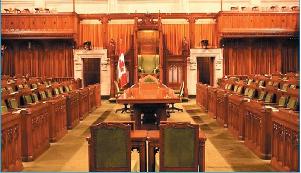Introduction
 Public policy matters. Ample economic research shows that it is not the size of the population, the level of the natural resources or the geographic location of a country that determines its long-run economic performance. Rather, it is primarily the quality of a country’s institutions and policies that determine, over time, its economic fortunes.1 It is important, therefore to have a clear understanding of what constitutes sound institutions and policies.
Public policy matters. Ample economic research shows that it is not the size of the population, the level of the natural resources or the geographic location of a country that determines its long-run economic performance. Rather, it is primarily the quality of a country’s institutions and policies that determine, over time, its economic fortunes.1 It is important, therefore to have a clear understanding of what constitutes sound institutions and policies. By ‘institutions’ we mean the ‘rules of the game’ by which people interact with one another. These rules (i.e. the institutional framework) can be classified into three categories: constitutional rules (that provide the ‘superstructure’ that regulates the ongoing process of making ordinary laws); operating rules (eg statute laws, regulations and common law decisions) and normative behavioural codes (codes of moral behaviour that legitimize the constitutional and operating rules).2 By ‘public policy’ we mean the ordinary laws and programmes —laid down, within a framework of constitutional rules, by the arms of government (parliament, the executive and the judiciary)— that regulate the economy and wider social interactions.
A key concern for policy makers in considering the institutional and regulatory environment is whether a different institutional arrangement or regulatory rule would yield better outcomes. In this sense, the purpose of public policy analysis is to compare different institutional arrangements in order to find the best mix of legislative and regulatory rules on the one hand and private (market and non-market) arrangements on the other. In other words, the task that faces the government is to compare and evaluate alternative ways of ordering social transactions. Which institutional option out of a wide range, extending from different types of private arrangements through to different types of government interventions, is preferred?
This introduction to public policy is organized into two parts. The first part provides a positive analysis of the operation of the economy, and the respective strengths and limitations of different institutional arrangements. By a positive analysis we mean an investigation into ‘the world as it is’. This part of the report discusses the nature of the constraints society faces in economic life, options for addressing these constraints, and the relative strengths and weaknesses of private and government arrangements in helping people achieve their aspirations.
The second part of the report adopts a normative perspective. That is, it ventures into the realm of ‘what should be’. The general question being addressed in this part of the report is what institutions and public policies are likely to deliver the best outcomes for Canadians. In particular, we consider the objectives of government and the respective roles of the public and private sectors in contributing to society’s overall welfare.3 In discussing what constitutes good institutions and public policy, we draw on theoretical insights supported by empirical evidence on the experience of Canada and other countries. This part of the report emphasises the impact of government interventions on the incentives that people face. The report also discusses how the principles and practices of designing policy relevant to a country differ from those that are applicable to commercial and other private organizations.